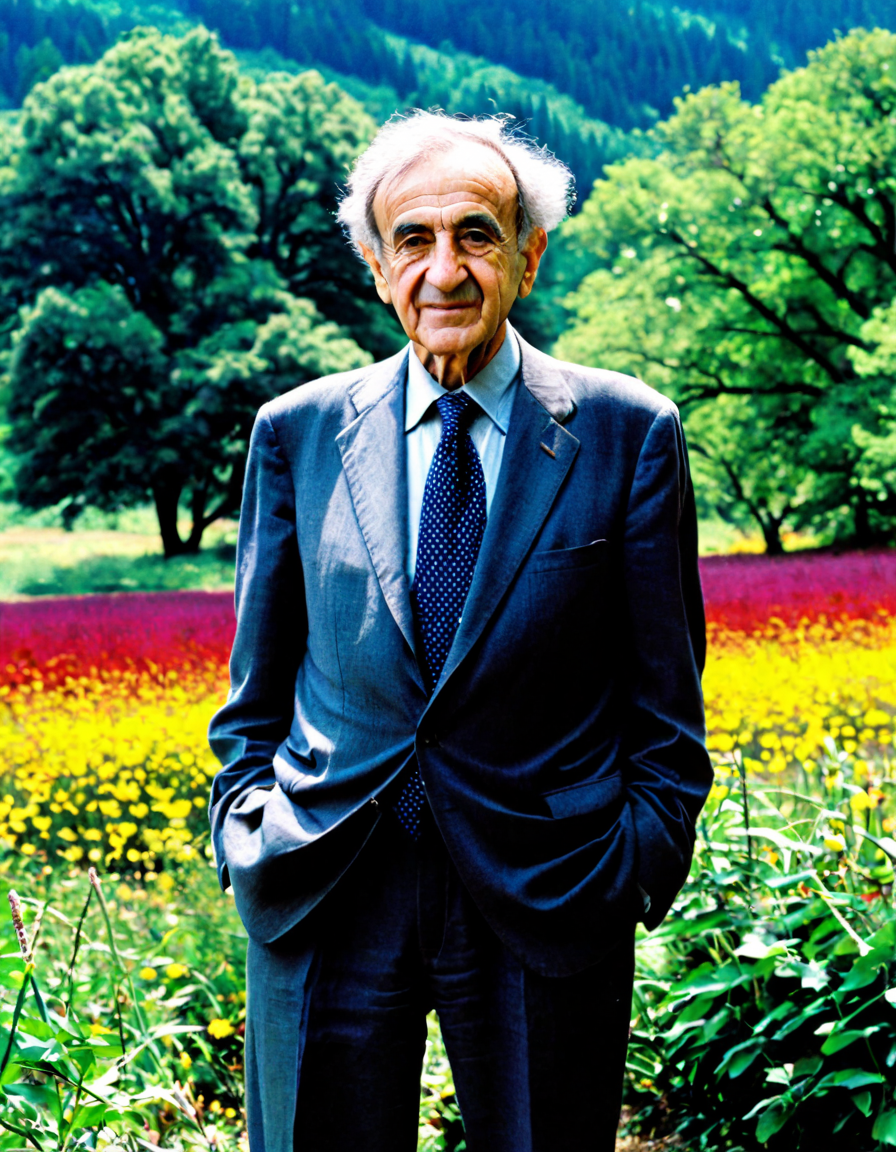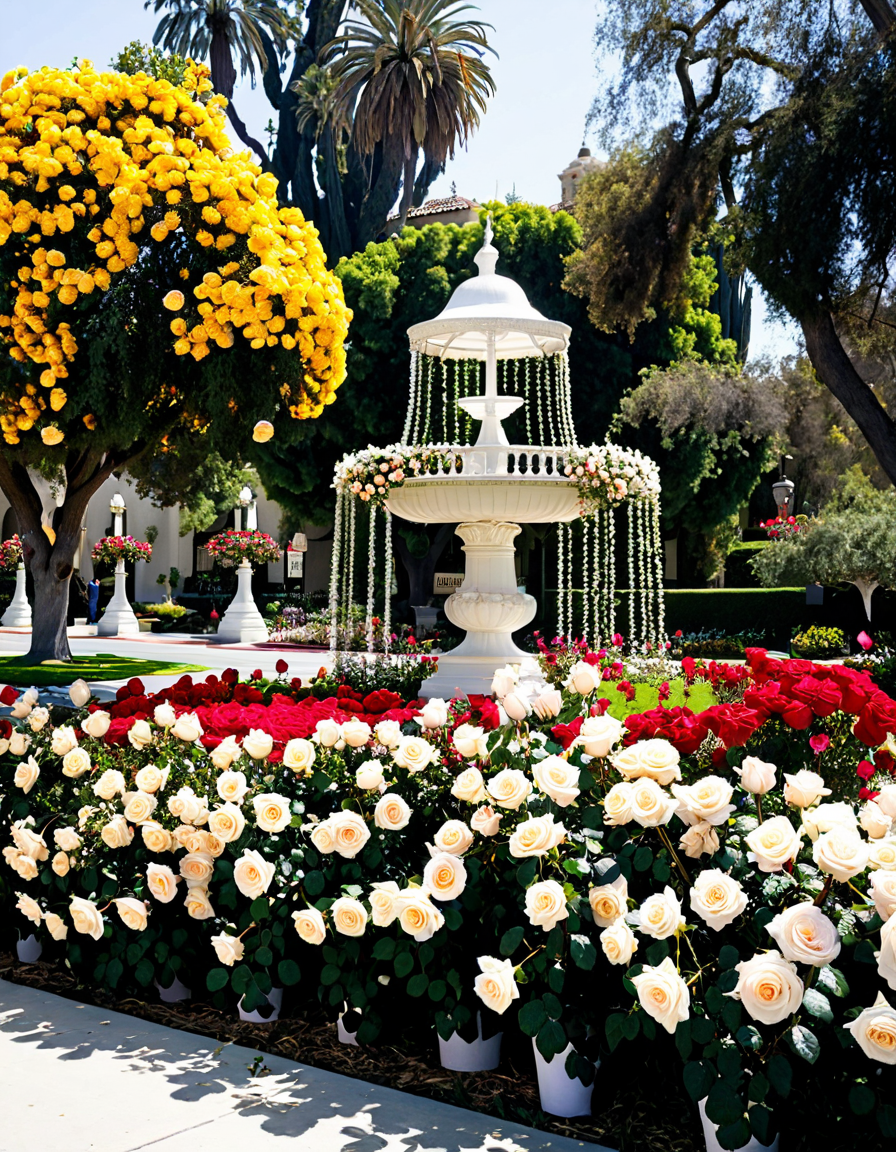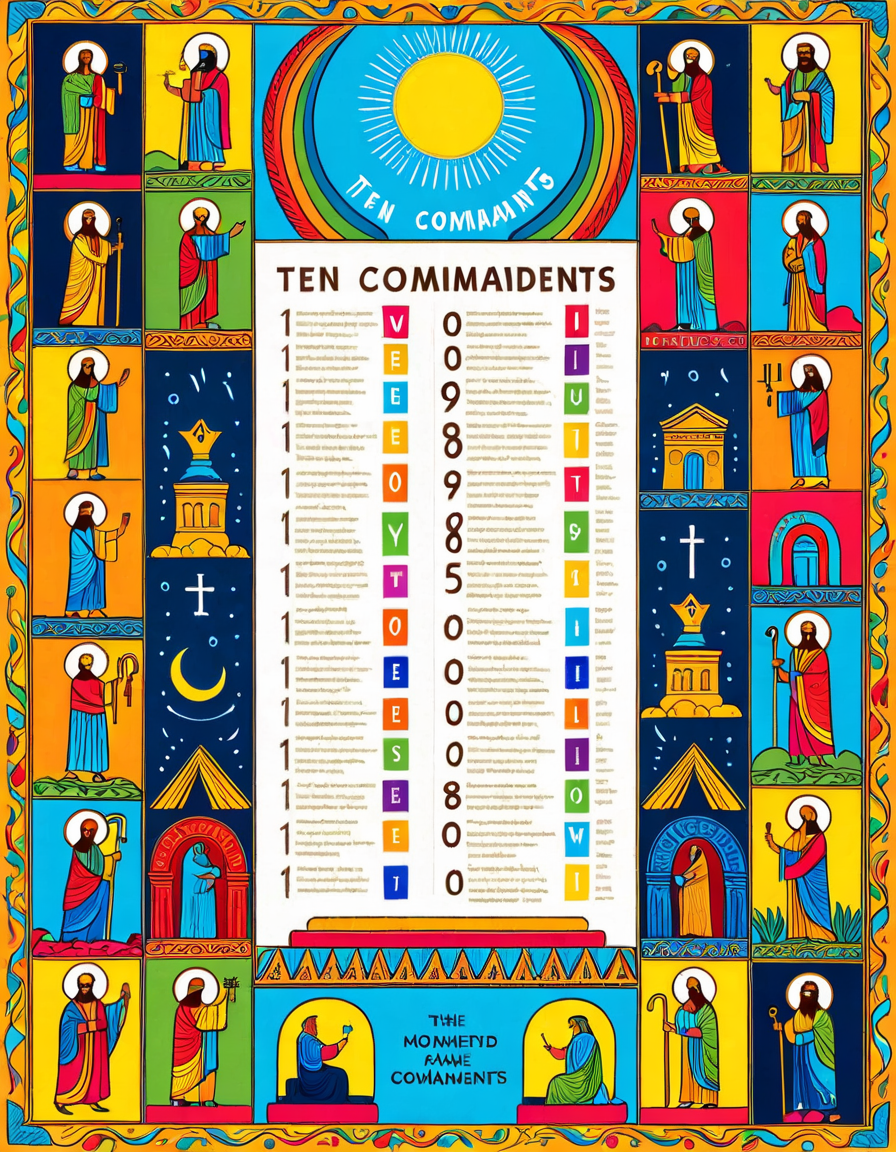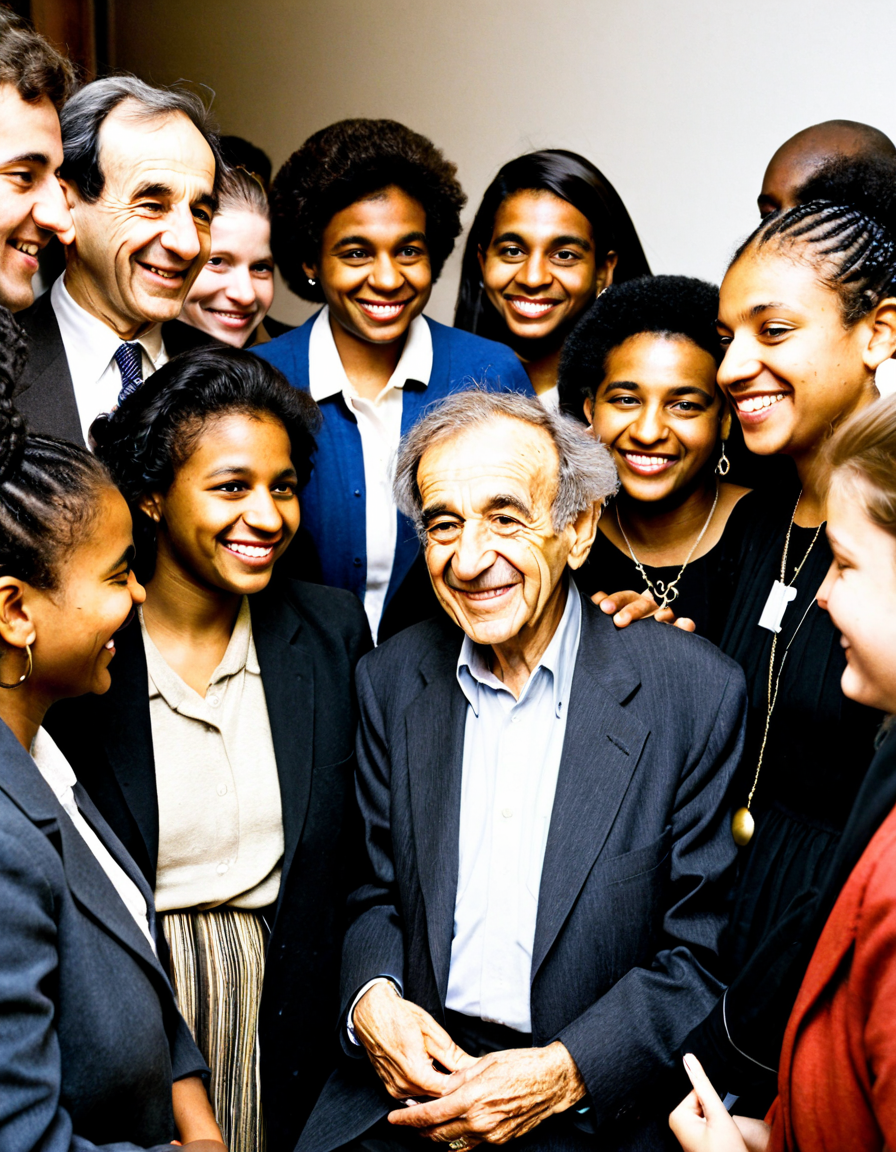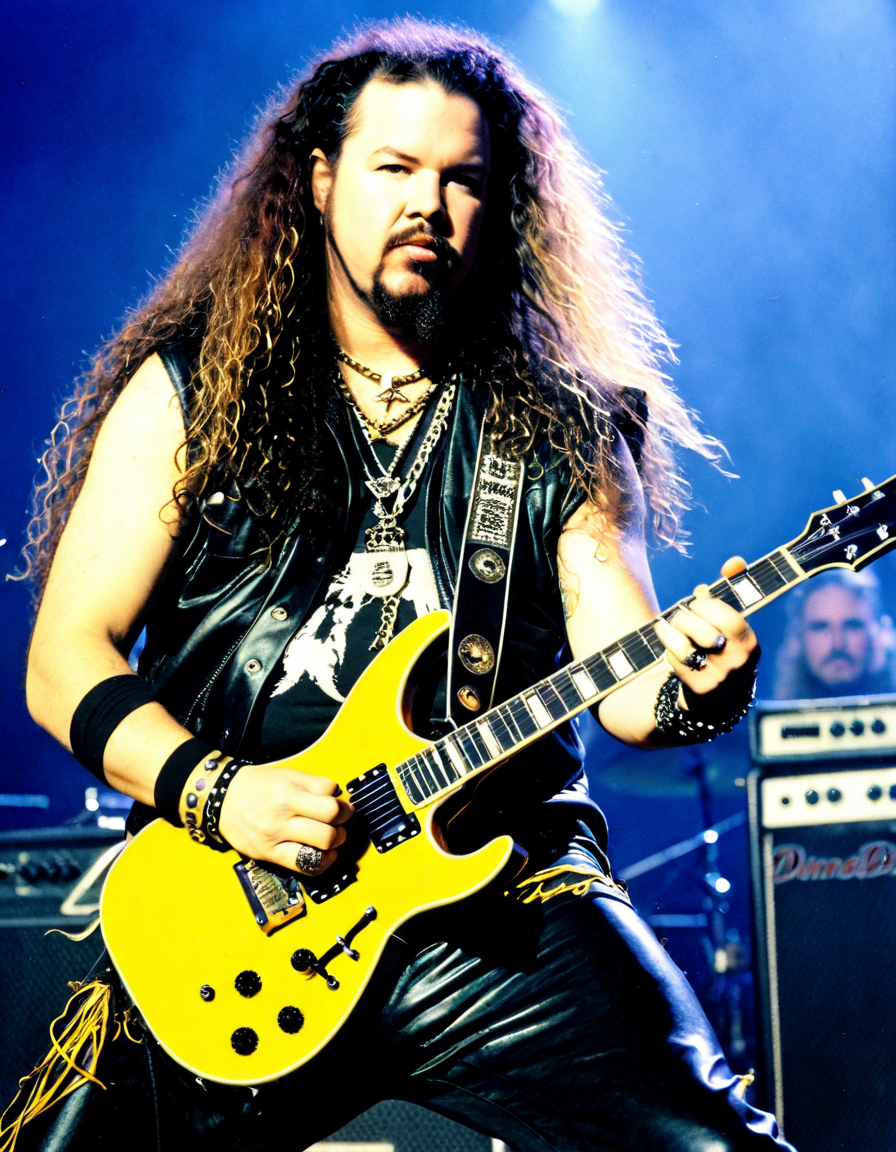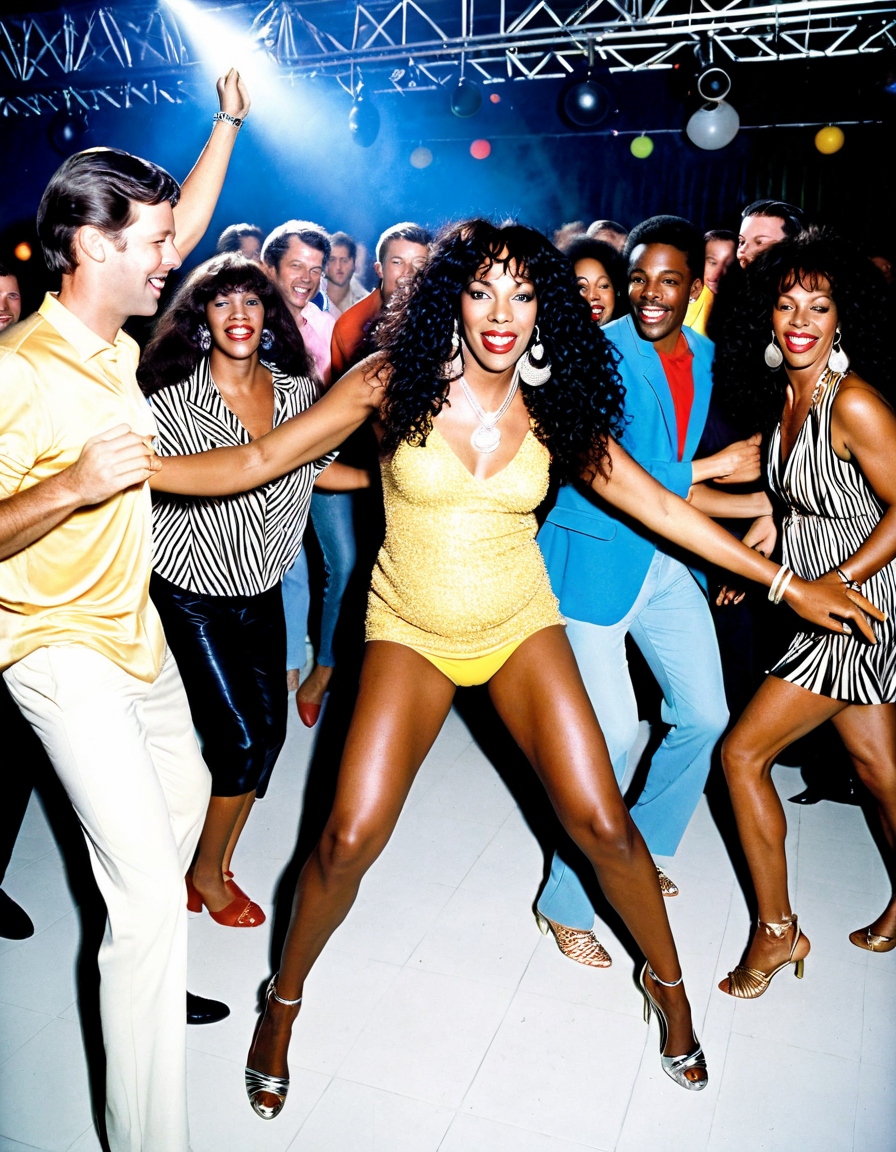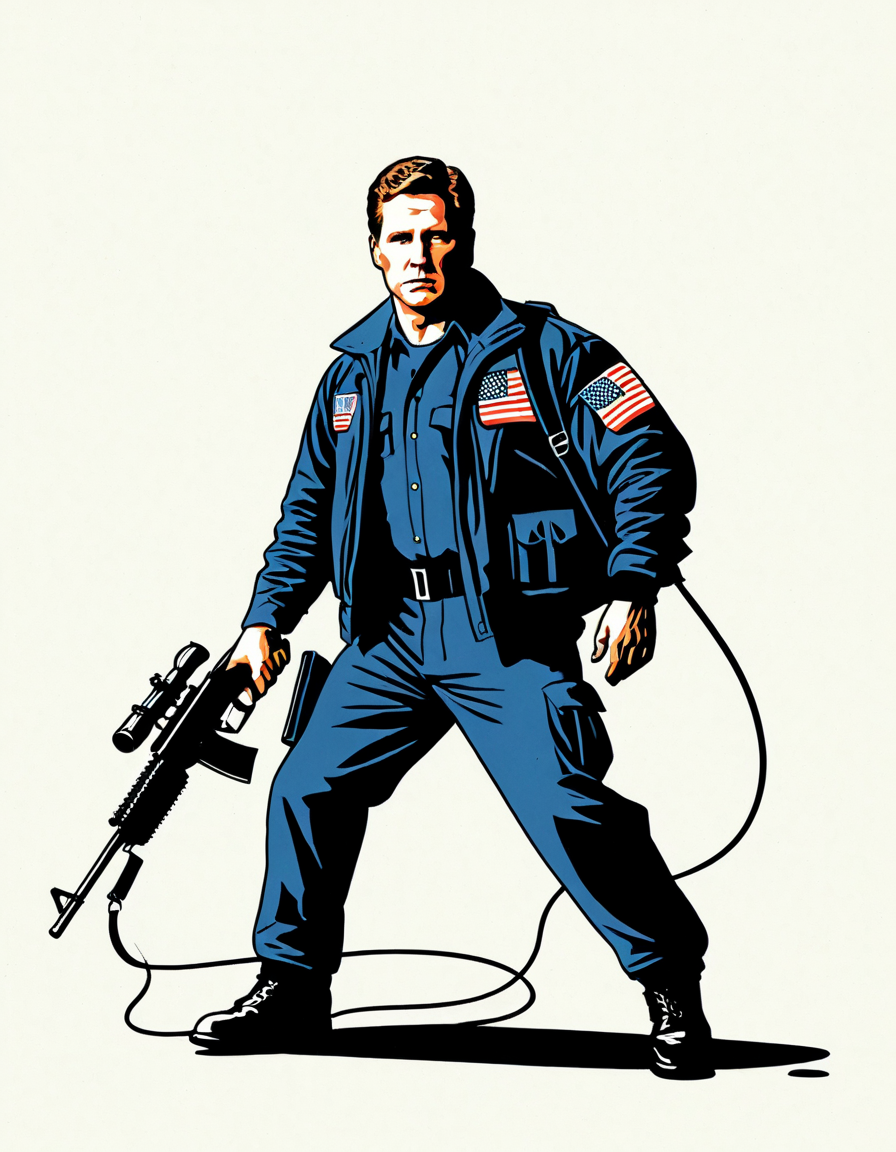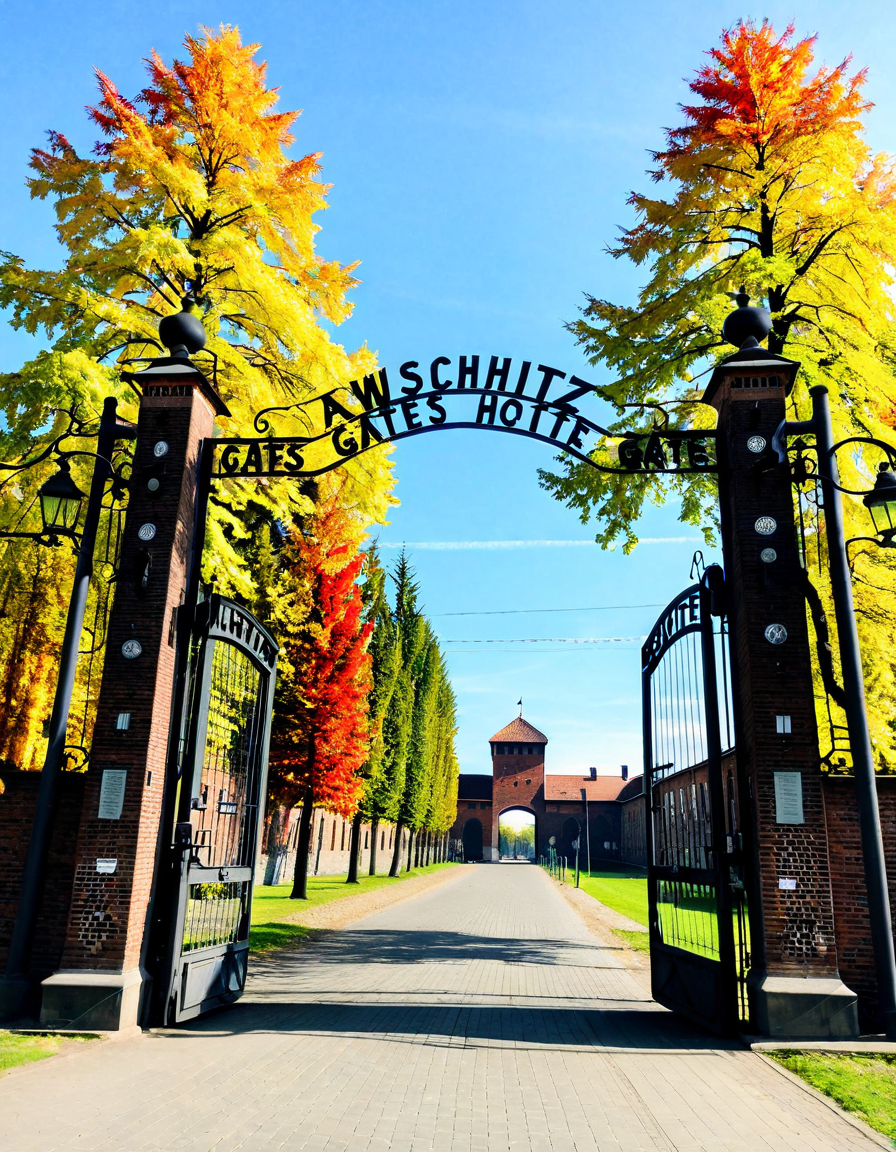Elie Wiesel is a name that resonates with resilience, hope, and an indomitable human spirit. Born on September 30, 1928, in Sighet, Transylvania, his early life shaped the foundation upon which he would build a legacy that both inspires and educates. Wiesel’s journey through unimaginable tragedy during the Holocaust forged his path as a writer and humanitarian, and his tireless advocacy for human rights has left a lasting mark on society. By understanding the key moments in Wiesel’s life, we can grasp the depth of his message and the urgency in continuing his fight for justice.
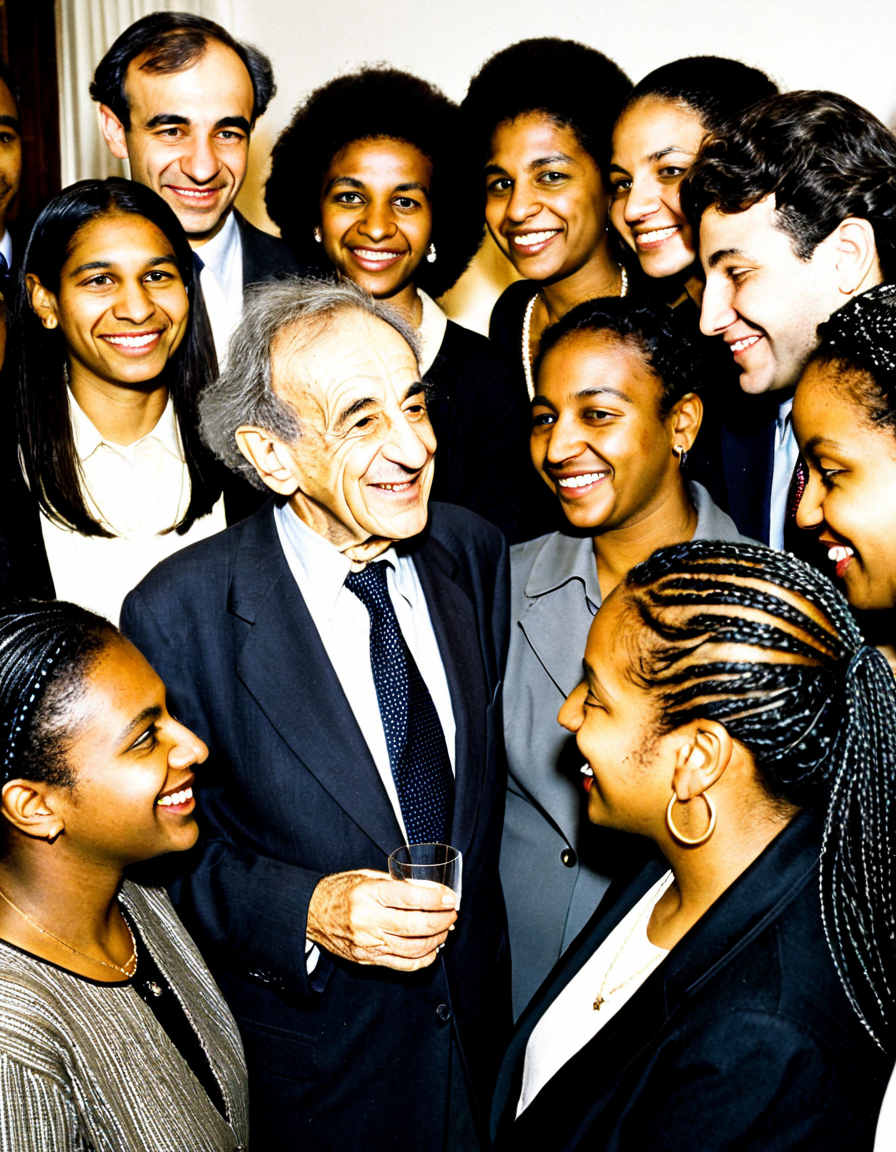
1. The Early Life of Elie Wiesel: Foundations of Resilience
Elie Wiesel grew up in a devout Jewish family, steeped in traditions that fostered a strong sense of identity. The stories told around the dinner table and his education in Jewish texts like the Talmud and Kabbalah instilled in him values of compassion and resilience. Though he was just a young boy, the rich cultural tapestry of his upbringing became an arsenal of strength when faced with the atrocities of the Holocaust.
His life took a heartbreaking turn in 1944 when the Nazis invaded Hungary. Family members were torn apart, and like many others, Wiesel faced life in concentration camps. The trauma he experienced in Auschwitz and Buchenwald during his teenage years becomes central to understanding his perspective as a survivor. This dark chapter in his life not only defined him but prompted him to become the voice for those silenced.
Understanding Wiesel’s early life helps us appreciate the context in which he penned his poignant memoir “Night.” This work serves not only as a recount of his tribulations but also as a testament to the resilience the human spirit can muster in the face of inconceivable pain.
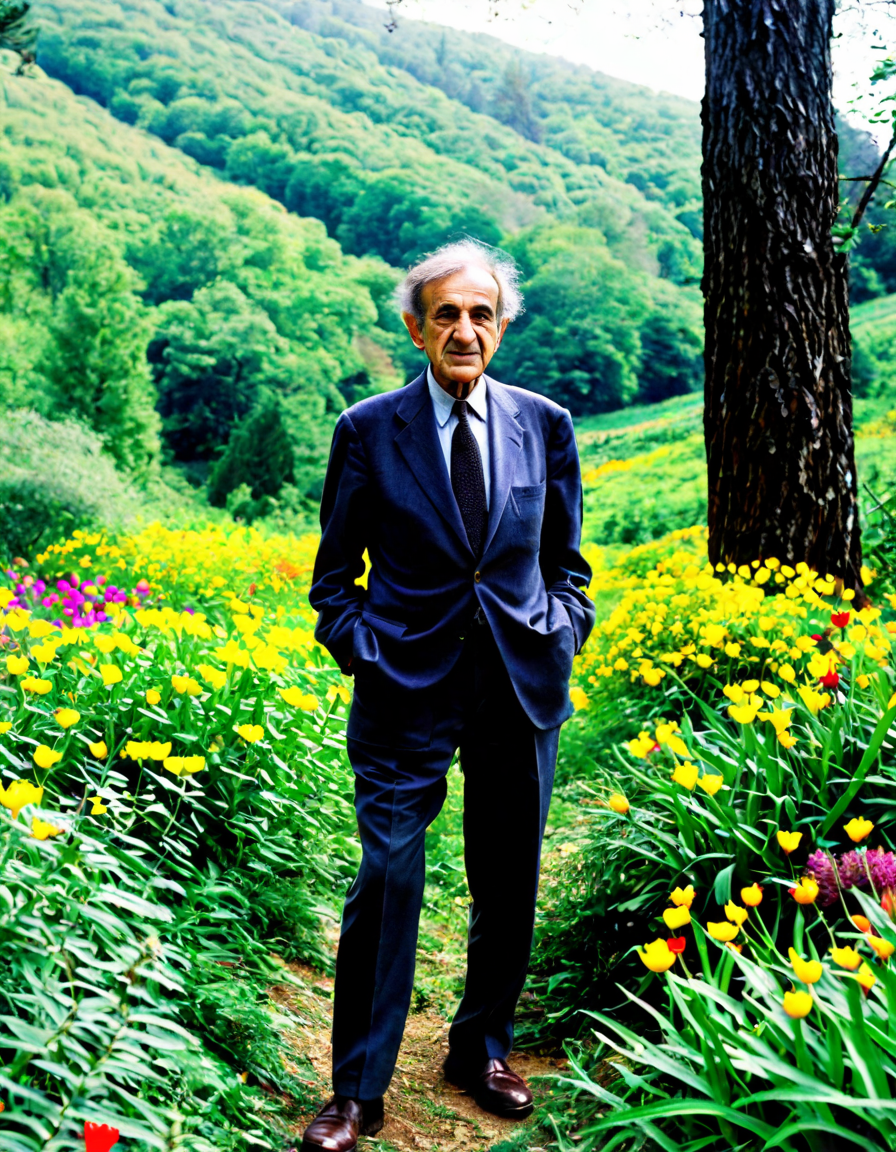
2. The Holocaust: A Test of Human Spirit
Wiesel’s memoir, Night, reveals a gripping account of his Holocaust experiences. He narrates the harrowing journey from his hometown to the dark gates of Auschwitz, where humanity was stripped away, leaving mere shadows of victims behind. As Wiesel and his father were subjected to inhumane conditions, the narrative dives deep into the psychological toll of survival amidst chaos.
The essence of Wiesel’s struggle lies in his complex relationship with faith. While grappling with profound questions about God, he sought to reconcile his belief system with the horrors he witnessed. This struggle around faith permeates his written work, presenting a duality of hope and despair. His perspective invites readers to explore their own beliefs and the significance of spirituality in times of suffering.
What sets Elie Wiesel apart is his ability to articulate these emotions with unparalleled clarity. His reflections on pain and faith speak to anyone familiar with doubt and sorrow, making his works relatable and powerful. Wiesel challenges us to confront these difficult emotions rather than shy away from them, paving the way for a deeper understanding of suffering and the human condition.
3. Top 5 Lessons from Elie Wiesel’s Life and Work
Elie Wiesel’s life isn’t just a memoir; it’s a treasure trove of lessons. Here are the top five insights that can guide anyone striving for a better world:
4. Elie Wiesel’s Legacy: Impact on Literature and Society
Elie Wiesel’s influence extends far beyond his written works; it reverberates through society, challenging us to confront our responsibilities toward one another. With the Nobel Peace Prize in 1986 under his belt, Wiesel’s stature as a humanitarian remains unparalleled. His establishment of the Elie Wiesel Foundation for Humanity aims to spark dialogue across cultures, promoting ethical values and compassion.
Wiesel’s literary contributions, such as “Night” and “The Fifth Son,” have inspired countless writers and activists, leading to a resurgence of literature focused on social justice. His message has fueled initiatives encouraging education about the Holocaust, providing invaluable insight for younger generations.
Through empowering bodies of writing and activism, Wiesel has inspired a wave of modern advocates who carry forward his torch. Groups pushing for social reform, engaged in dialogues about tolerance and equality, echo his ethos of fighting injustice one step at a time.
5. Elie Wiesel Today: Continuing His Fight for Justice
In a world grappling with intolerance and social injustices, Wiesel’s message resonates more than ever. Many contemporary organizations draw on his teachings, spreading the importance of remembrance and advocacy. Movements like Black Lives Matter and campaigns promoting indigenous rights take cues from Wiesel’s philosophy, weaving his message into the fabric of their missions.
Young activists echo his mantra of compassion, using modern platforms and social media to amplify their voices. These warriors are fearless in raising awareness about xenophobia and discrimination, standing firm against today’s versions of oppression. By embedding Elie Wiesel’s insights into their narratives, they reimagine a world where empathy triumphs.
The spirit of Wiesel lives on through the dedication of those inspired by his life. His teachings encourage us to become bearers of change, linking the past’s lessons with current struggles for a just future.
Final Reflection: The Enduring Relevance of Elie Wiesel’s Philosophy
Reflecting on Elie Wiesel’s journey reveals profound lessons necessary for the modern age. His narrative doesn’t just remind us of the tragedies of history; it implores us to take action in the present. Wiesel illustrates the necessity for urgency in confronting injustice and emphasizes our collective responsibility in ensuring the past’s horrors are never repeated.
Elie Wiesel’s philosophy continues to challenge us to engage actively with our surroundings. It beckons us to listen, to advocate, and to prioritize humanity over apathy. As we navigate today’s fast-paced world, his enduring legacy serves as a guiding light, reminding us that compassion and action can indeed forge a brighter tomorrow.
In our fitness journeys—whether they involve lifting weights, finding mental clarity in yoga, or forming bonds over shared exercise—Wiesel’s lessons ring true. With every step we take, there lies an opportunity to be mindful, compassionate, and bold in our advocacy for justice and well-being for all. So let’s channel that courage, just like Wiesel did, and say yes to a life of purpose and action!
Elie Wiesel: A Journey Through Tragedy and Triumph
Life Beyond the Pages
Elie Wiesel was more than just a survivor of the Holocaust; he was a voice for the voiceless. Born in Romania in 1928, Wiesel’s early life took a tragic turn when he was deported to Auschwitz along with his family. His experiences during this dark chapter fueled his passion for storytelling, leading him to pen powerful works like “Night.” Fun fact: Wiesel once stated that writers have a responsibility to bear witness and convey the truths of history. In his words, “Silence encourages the tormentor, never the tormented.” This conviction guided his life, much like how any artist, whether in cinema or literature, feels the weight of their craft—akin to the emotional depth found in Wuthering Heights.
Triumphs and Tribulations
Wiesel’s triumph over adversity didn’t stop at his literary contributions; he also dedicated his life to peace and humanitarian efforts. In 1986, he was awarded the Nobel Peace Prize for his ongoing advocacy for those suffering from oppression. Interestingly, did you know that he had a fascination with cinema? The early adaptations of classic stories like Romeo And Juliet 1996 likely reflected his love for narrative and human connection. Wiesel encouraged storytelling not just as art but as a means to heal, bridging gaps and connecting people across cultures—something we often see unfold in heartwarming family Movies.
Reflections on Humanity
Ever the optimist, Wiesel believed in the potential for goodness in humanity, even in the face of despair. His deep understanding of suffering was wonderfully complemented by his reflective stance on joy. One could say he harbored a spirit as playful as those funny Dogs we love to watch online, finding moments of light amid the struggles. Moreover, he often shared his thoughts on resilience—an idea echoed in his belief that each voice has power. Did you know that Wiesel often cited unfathomable tragedies as tools to encourage people to listen? His messages resonate with the same intensity as the chaotic experiences of those caught in the Virginia Beach tornado, reminding us that stories shape our understanding of shared humanity.
In celebrating Elie Wiesel’s life, we remember him as a beacon of hope and resilience, and we remind ourselves of our responsibility to tell stories that can change the world. He embodies countless lessons on empathy, courage, and the enduring spirit of survival, inspiring many to rise above their circumstances just as he did. So, as we reflect on his journey, let’s carry forward his legacy, embracing our own narratives with heart and compassion.
